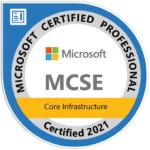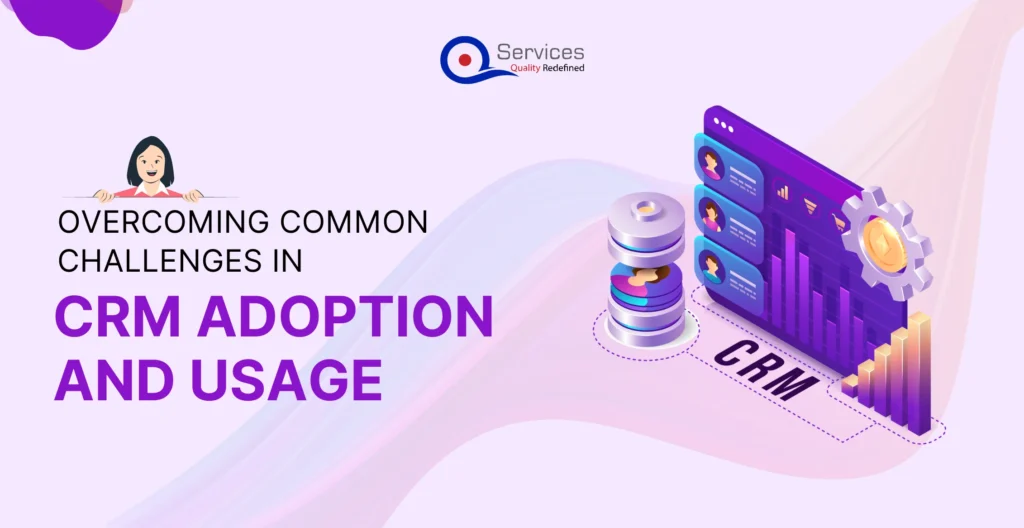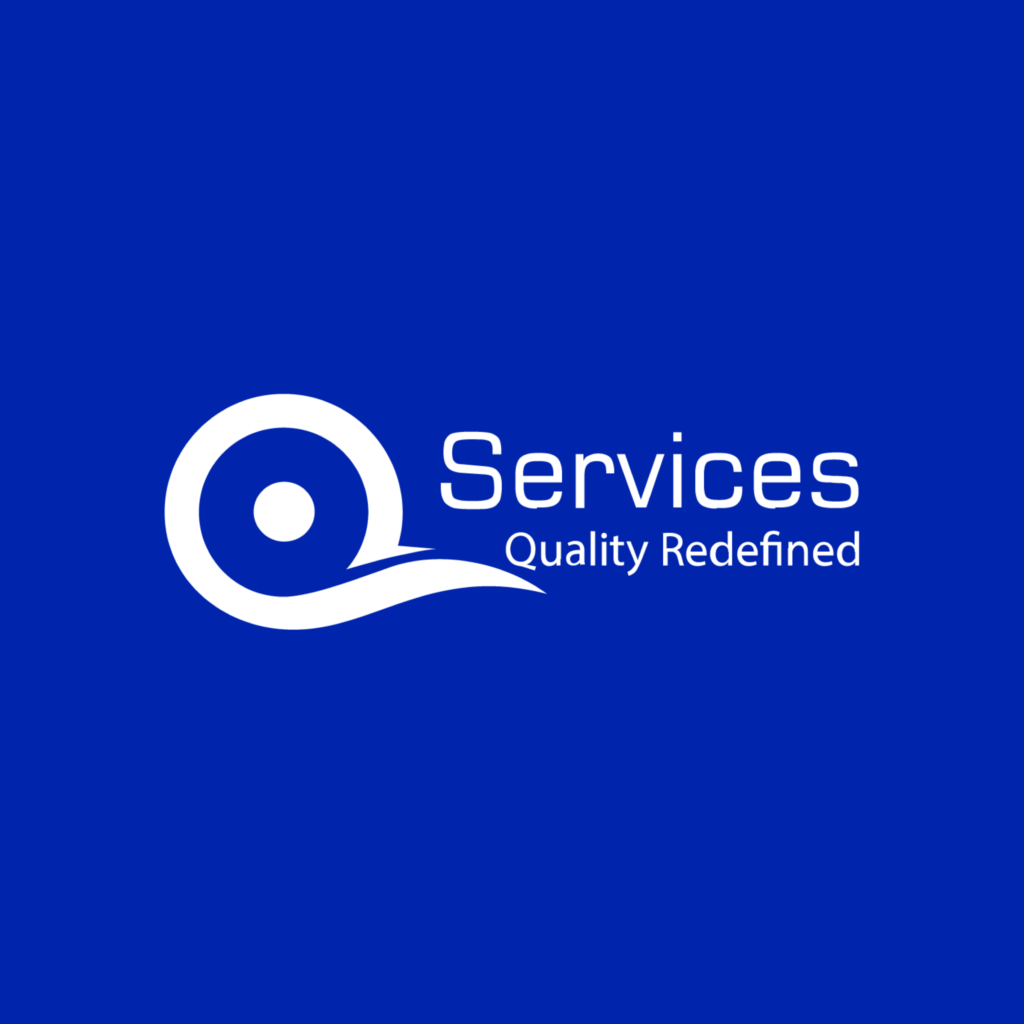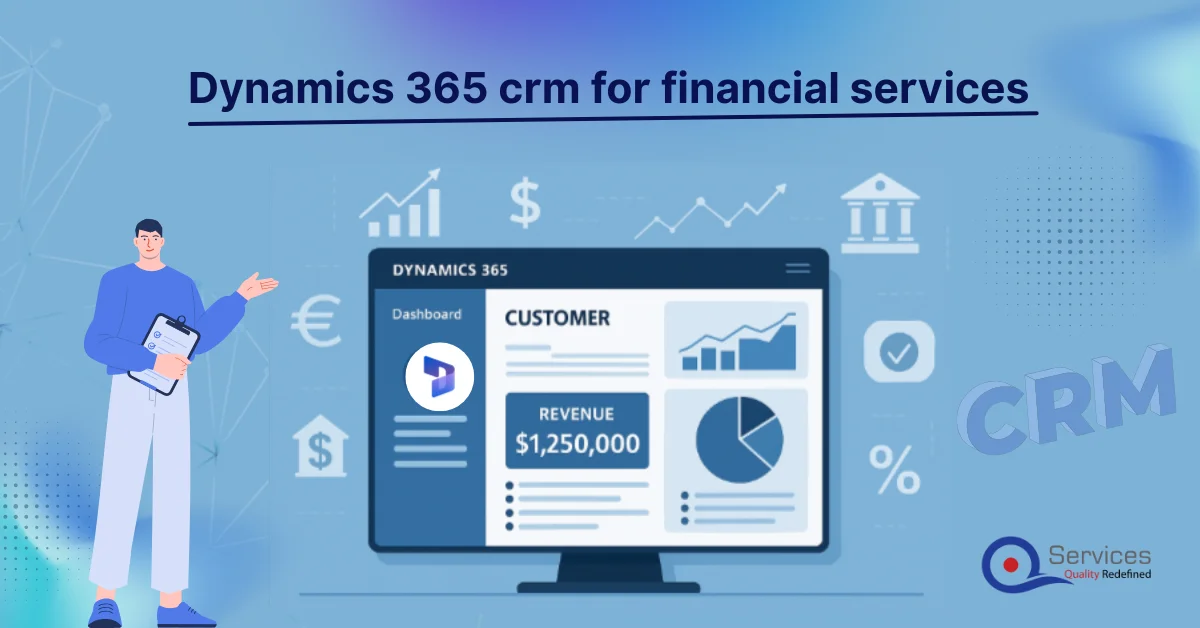
Rewards
.





CANADA
55 Village Center Place, Suite 307 Bldg 4287,
Mississauga ON L4Z 1V9, Canada
Certified Members:
.



Home » Overcoming Common Challenges in CRM Adoption and Usage

Why is customer relationship management (CRM) software so important for businesses today? CRM software is crucial because it provides sales teams with the tools they need to effectively manage and streamline their sales processes. By automating tasks and using data, CRM software helps improve relationships with customers through better communication and interaction management. Although many companies, especially those with 10 or more employees, use CRM systems, they often face resistance from sales teams when introducing new systems. Overcoming these challenges is important for boosting productivity and ensuring CRM tools are successfully used across all areas, ultimately improving customer relationships and helping the business grow.
In this blog, let’s explore how to overcome common challenges in CRM adoption and usage, particularly for small businesses, with a focus on CRM for small businesses.
Tackling CRM adoption and usage challenges is essential for organizations to fully utilize the benefits of their customer relationship management (CRM) systems, which are integral components of modern business management software. This becomes even more crucial when we consider the substantial return on investment; companies investing in CRM systems anticipate a remarkable $8.71 return for every dollar spent. Let’s now explore the purpose behind addressing these challenges:
By overcoming adoption hurdles, organizations ensure that their sales teams and other users actively engage with the CRM. Increased usage leads to better data management, streamlined processes, and improved productivity.
A well-adopted CRM system provides reliable data for decision-making. Organizations can analyze customer behavior, sales trends, and performance metrics to make informed choices.
Successful CRM adoption fosters collaboration across departments. Teams can share information seamlessly, leading to better customer service and sales outcomes.
Cost optimization is achieved when users fully embrace the CRM, leading to a better return on investment for the organization. Reduced resistance and efficient system usage enhance cost-effectiveness by minimizing wasted resources and ensuring the CRM’s capabilities are fully utilized to streamline operations and improve productivity.
Whether it’s improving customer satisfaction, increasing revenue, or enhancing marketing efforts, the CRM plays a significant role. A purposeful CRM strategy ensures that the system aligns with overall business objectives.
Addressing adoption challenges ensures that sensitive customer data remains secure. Compliance with regulations becomes easier when users actively participate in maintaining data quality.
Purposeful adoption allows organizations to tailor the CRM to their unique processes. Customization ensures that the system adapts to evolving business needs.
Addressing CRM adoption challenges is key to integrating the system into daily operations, ensuring long-term success through ongoing training, monitoring, and continuous improvement.
Get free Consultation and let us know your project idea to turn into an amazing digital product.
Businesses, especially small businesses, often encounter many obstacles when implementing Customer Relationship Management (CRM). Let’s discuss some of the common challenges:
Resistance to change, arising from employees’ fear of disruption to routines and job security concerns, presents a significant hurdle in CRM adaptation for companies. This reluctance can impede successful implementation efforts, necessitating strategic approaches to overcome employee hesitancy and cultivate acceptance of new CRM systems.
When employees do not fully embrace a customer relationship management (CRM) platform, such as CRM order management, it significantly impacts the organization’s ability to leverage the system’s potential benefits. Imagine a small retail company implementing a CRM system to manage customer interactions, sales leads, and order processing. The sales team, accustomed to manual spreadsheets and email communication, faces many challenges. That’s why user adoption is crucial; even the most advanced CRM features, including order management capabilities, remain ineffective if employees don’t actively use them.
Data quality issues pose a significant challenge in CRM adoption and usage for businesses. Inaccurate, incomplete, or inconsistent data within the CRM system can lead to various problems, including poor decision-making, wasted resources, loss of trust, operational inefficiencies, and errors in reporting and analytics. For instance, targeting the wrong audience or misinterpreting customer preferences can result in missed sales opportunities and frustrated customers.
Integration complexity can present a formidable challenge in CRM adoption and usage for businesses, especially small ones. This complexity stems from the necessity of seamlessly integrating the new CRM system with existing business management tools and processes. It entails navigating diverse ecosystems of various software tools, ensuring smooth data flow between systems, assessing compatibility, and potentially requiring custom development using APIs.
Cost and resource constraints pose substantial challenges for businesses, particularly small ones, in adopting and utilizing CRM systems. Financial limitations often restrict their ability to invest in expensive CRM solutions or extensive customization, while resource scarcity, including limited staff and expertise, hampers successful implementation efforts. Small teams must carefully balance their available resources, prioritizing essential features to ensure cost-effectiveness.
Insufficient training for CRM users poses a significant challenge in adoption and usage, particularly for small businesses. Without proper training, users may struggle to navigate the CRM interface, leading to underutilization and missed opportunities. Additionally, employees accustomed to existing processes may resist adopting the CRM, further hindering its implementation. Inefficient workflows and inaccurate data entry due to lack of training can impact productivity and decision-making.
Measuring CRM effectiveness is vital for optimizing processes and achieving business goals. Challenges like data availability, alignment with objectives, interpretation complexity, and balancing metrics can be daunting for small businesses. Strategies such as accurate data entry, aligning metrics with objectives, contextual analysis, and balancing insights help mitigate these challenges and maximize CRM adoption benefits.
Overcoming CRM adoption challenges is essential for small businesses to fully leverage the benefits of Customer Relationship Management systems. Let’s explore some effective strategies to address these common challenges:
Including end users in the decision-making process is essential to the successful adoption of CRM. Employees are more likely to accept the changes and participate actively in the transition when they are involved in the CRM implementation process and have a voice in it. Their suggestions and criticisms facilitate the adoption process and cultivate a feeling of ownership.
For example, consider a small marketing agency implementing a new CRM system to manage client interactions, leads, and campaign tracking. Instead of imposing the system, the agency’s management conducts a series of workshops where team members share their pain points, preferences, and expectations. They discuss how the new system can address existing challenges and enhance collaboration.
As a result:
By actively involving the end-users, the agency gains several benefits:
Buy-In and Ownership: Team members feel invested in the CRM’s success because their opinions were considered. They become advocates for the system.
Customization: The agency tailors the CRM to meet specific needs, incorporating features that align with user requirements.
Reduced Resistance: Employees are less likely to resist the change because they understand its purpose and have contributed to the decision.
Establishing thorough data validation processes to regularly check for and correct errors such as duplicates, incomplete entries, and inconsistencies. Developing a comprehensive data governance framework is crucial, where data ownership and quality standards are clearly defined, and responsibilities for data maintenance are assigned. Regular monitoring and maintenance of the CRM database are essential, with automated alerts and scripts to identify and address anomalies or outdated information. Continuous employee training on data entry best practices and the importance of data accuracy can further maintain high-quality data.
Key Strategies:
Data Validation Processes: Implement regular data validation and cleansing procedures to maintain accuracy, including deduplication and standardization checks.
Data Governance Framework: Establish clear data ownership, quality standards, and maintenance responsibilities.
Regular Monitoring and Maintenance: Continuously monitor data quality metrics, set up alerts for anomalies, and use automated scripts to identify outdated information.
Overcoming integration complexity in CRM adoption is essential for businesses seeking streamlined operations and enhanced customer experiences. Start by assessing current software systems and prioritizing integration points crucial for customer interactions and sales. Explore integration methods like APIs and leverage vendor support for seamless integration. Rigorous testing ensures data accuracy and performance, while involving end-users in testing helps identify usability issues early on. Implementing change management and training programs prepares employees for the integrated environment, emphasizing streamlined processes and benefits. Through these strategic approaches, businesses can optimize data flow, drive growth, and strengthen customer relationships.
Overcoming cost and resource constraints in CRM adoption is important for small businesses. One strategy is careful planning and budget allocation, making sure to fund the key CRM features needed by the business. Businesses should also consider cost-effective CRM options, like open-source or cloud-based solutions, which often have subscription pricing and lower upfront costs. Another key point is efficient data management, where centralizing customer information helps in better decision-making and saves money over time.
Enhanced customer service from CRM can increase customer loyalty, boosting sales and revenue to cover CRM costs. Sales growth is supported by tracking customer interactions and analyzing data to create better marketing strategies. Streamlined processes from CRM automation save time and reduce errors, leading to cost savings. Improved collaboration across departments keeps everyone on the same page and increases productivity. Finally, getting administrative support by involving executives and explaining CRM benefits helps secure the needed resources and budget for CRM adoption.
Comprehensive Training is essential to equip users with the knowledge and skills necessary to navigate the CRM system proficiently. A thorough training program should cover:
System Navigation: Users should be trained on how to navigate the CRM interface effectively. This includes understanding the dashboard, menus, and shortcuts that can enhance their efficiency.
Data Entry: Accurate data entry is crucial for the integrity of the CRM system. Training should focus on best practices for entering data, ensuring consistency, and avoiding common errors.
Feature Utilization: Users need to understand the full range of features available in the CRM system. This includes how to generate reports, set up automated workflows, manage customer interactions, and use analytics tools.
By providing comprehensive training, businesses can ensure that users are not only comfortable with the CRM system but also able to leverage its full potential to improve their work processes.
Role-Based Training tailors the learning experience to suit the specific needs and responsibilities of various user groups within the organization. This focused approach ensures:
Relevance: Training directly applies to users’ job functions, making it more immediately useful.
Efficiency: Training optimizes time by concentrating on the features and tasks most relevant to each role, avoiding overwhelming users with unnecessary information.
Confidence: Users gain confidence in using the CRM system as they see how it directly supports their daily tasks and responsibilities.
For instance, sales teams could receive training specifically on lead management and sales pipeline tracking, while customer service teams would focus on managing support tickets and customer interactions.
A notable statistic reveals that 38% of salespeople believe their company should enhance its methods for measuring and rewarding CRM usage. This underscores the critical importance of effectively measuring CRM metrics and utilizing them to promote CRM adoption and usage.
Let’s highlight some of its significance.
Measuring CRM metrics accurately is crucial for successful adoption, especially for small businesses. Establishing aligned KPIs ensures a clear evaluation of CRM effectiveness, while accurate data entry and contextual analysis facilitate targeted problem-solving. Balancing insights from various metrics provides a comprehensive view of CRM performance, supported by continuous improvement through regular assessment for sustained business growth.

Addressing common challenges in CRM adoption and usage is essential for businesses, particularly small ones, to leverage the full potential of CRM software. By overcoming resistance and ensuring effective utilization across all departments, businesses can enhance productivity, strengthen customer relationships, and foster sustainable growth.
Explore further insights into why your business needs a CRM solution to streamline sales processes in our accompanying blog.

Our Articles are a precise collection of research and work done throughout our projects as well as our expert Foresight for the upcoming Changes in the IT Industry. We are a premier software and mobile application development firm, catering specifically to small and medium-sized businesses (SMBs). As a Microsoft Certified company, we offer a suite of services encompassing Software and Mobile Application Development, Microsoft Azure, Dynamics 365 CRM, and Microsoft PowerAutomate. Our team, comprising 90 skilled professionals, is dedicated to driving digital and app innovation, ensuring our clients receive top-tier, tailor-made solutions that align with their unique business needs.

The oil and gas industry works in some of the most challenging and most demanding environments on the planet. From offshore rigs to large refineries, the machinery and infrastructure that powers this sector is extremely important for the global energy supply chain. However, equipment failures can lead to costly downtime, security risks and environmental hazards

Dynamics 365 CRM for Financial Services is a specialized version of Microsoft Dynamics 365 Customer Relationship Management (CRM) tailored specifically for the financial services industry. It is designed to help financial institutions, such as banks, insurance companies, investment firms, and wealth management organizations, manage their customer relationships, streamline operations, and enhance service delivery.

Companies are catching on to the fact that they need cool tech like Dynamics 365 CRM and ReactJS if they want to keep things running smooth and make smarter choices.
A key challenge in Customer Relationship Management (CRM) implementation is ensuring user adoption. Even if you choose the right CRM software and set clear objectives, without enthusiastic buy-in from your team, the implementation may falter.
CRM adoption is crucial for small businesses as it centralizes customer data, improves decision-making, enhances customer service, streamlines processes, boosts sales team efficiency, and provides a competitive edge in the market.
When choosing a CRM system, businesses should align features with their goals, assess budget constraints, ensure user-friendly interfaces, plan for scalability, verify seamless integration with existing tools, explore customization options, emphasize data security, and evaluate vendor support services.
It enables customers to manage the orchestration of orders through to fulfillment. It is designed to operate in complex environments where there are many internal and external systems and partners that enable the supply chain processes.
The implementation process involves integrating the application into an organization’s existing systems and processes to streamline and optimize their order fulfillment process.
.





55 Village Center Place, Suite 307 Bldg 4287,
Mississauga ON L4Z 1V9, Canada
.




Founder and CEO

Chief Sales Officer

🎉 Thank you for your feedback! We appreciate it. 🙌